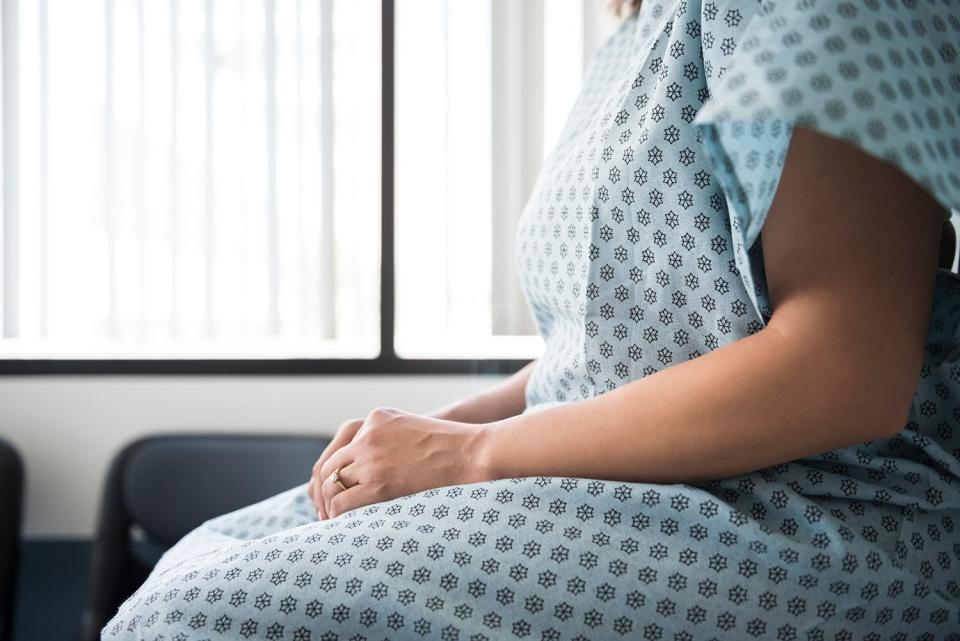Céline Dion Diagnosed with Stiff-Person Syndrome — Here's What to Know About the Rare Condition

Virginia Sherwood/NBC/NBCU Photo Bank/Getty Images Celine Dion
Céline Dion revealed Thursday morning that she's been diagnosed with stiff-person syndrome, sharing a tearful Instagram video that the condition would force her to postpone and cancel a series of upcoming concert dates.
"I've been dealing with problems with my health for a long time, and it's been really difficult for me to face these challenges and to talk about everything that I've been going through," Dion, 54, told fans, admitting that she's still learning about the rare condition and how it impacts her life and music career.
PEOPLE spoke to Dr. Pavan Tankha, medical director of comprehensive pain recovery for Cleveland Clinic's Neurological Institute, to answer questions about the neurological disease, which only about one of every one million people have been diagnosed with. Here's what to know about stiff-person syndrome (SPS).
The condition is a rare and incurable neurological disease that affects the central nervous system, specifically the brain and spinal cord. It typically develops between ages 30 and 60, and women are twice as likely to be diagnosed with the syndrome than men. Experts say the cause of SPS is unknown, however, it's believed to be an autoimmune disease, where the body's immune system attacks healthy cells.
RELATED: Céline Dion Reveals Diagnosis with Rare Neurological Disease Called Stiff-Person Syndrome

getty
Never miss a story — sign up for PEOPLE's free daily newsletter to stay up-to-date on the best of what PEOPLE has to offer, from juicy celebrity news to compelling human interest stories.
According to the Stiff Person Syndrome Foundation, the neurological disease can cause symptoms like "hyper-rigidity, debilitating pain, chronic anxiety," and muscle spasms "so violent they can dislocate joints and even break bones." Patients can also become disabled, wheelchair-bound or bedridden.
"There is that stiffness of the muscles in the trunk muscles, the abdomen, the chest, that comes and goes slowly over time," Tankha, who does not treat Dion, explains. "That stiffness then spreads to the legs, arms, face and as it progresses can be so bad that it can actually hunch people over. In very, very severe cases, people can't even move. Rarely, the stiffness and muscle spasms can be so bad it can actually cause broken bones."
"Initially, the symptoms usually start off mild but the onset can be from a few months to a few years," he adds. "You may develop symptoms very rapidly and they continue to progress or you develop symptoms very slowly — it can plateau for a few years, then progress."
Because SPS is incurable, treatment is aimed at addressing symptoms and improving mobility and comfort.
"Initially, it's symptomatic management of the achiness and pain from the stiff muscles. However, if it has advanced and the stiffness is constant and progressing, then you talk about slightly more aggressive treatments such as the IVIG, treatments and plasmapheresis," Tankha tells PEOPLE.
RELATED: Céline Dion Postpones Tour Again Due to Ongoing Spasms: 'I'm Doing My Very Best to Get Back'
While it varies among patients, he explains that it's possible for patients to live a normal, "well-managed" life with SPS with early, proper diagnosis and symptom management. The challenge, however, comes with understanding triggers that can cause muscle spasms.
"The muscle spasms are rather unique in the sense that they could either last a few seconds up to a few hours," Tankha says. "The triggers for these muscle spasms are the frustrating part. For so many patients, it could be something as simple as loud noise, stress, or even light touch and muscles will go into severe spasms."
"Oftentimes, good restful sleep can help minimize the number of spasms you get but that being said, if you find a stable regimen, it's difficult to predict aside from those triggers for muscle spasms, when things will move forward or stay the same," he continues. "We really just take it one day at a time and try to treat the symptoms as best we can."
Although SPS is extremely rare, experts suggest anyone experiencing consistent pain or tightness in the chest or abdomen see their doctor.
"The one thing to keep in mind is this is an exquisitely rare syndrome — one in a million people get it," Tankha notes. "The presenting symptoms are usually mild, and rather innocuous. You could have some tightness or aching in the abdominal muscles, and I could easily see someone thinking to themselves, 'Did I do some sit ups yesterday, did I lift something heavy? Are my muscles tight?' But again, the one characteristic feature is, though that may go away initially, it will keep coming back so any new symptoms may be worthwhile exploring."
"But again, just so people don't get alarmed, stiff person syndrome is still one in a million," he emphasizes.

 Yahoo Movies
Yahoo Movies 